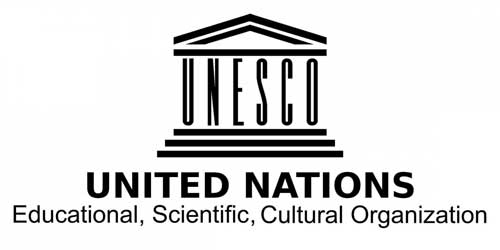The United Nations Educational, Scientific and Cultural Organization (UNESCO) is a specialized agency of the United Nations (UN). Its purpose is to contribute to peace and security by promoting international collaboration through education, science, and culture in order to further universal respect for justice, the rule of law, and human rights along with fundamental freedom proclaimed in the UN Charter. It is the heir of the League of Nations’ International Commission on Intellectual Cooperation.
The Constitution of United Nations Educational, Scientific and Cultural Organization was introduced and signed by 37 countries, and a Preparatory Commission was established. The Preparatory Commission operated between 16 November 1945, and 4 November 1946—the date when UNESCO’s Constitution came into force with the deposit of the twentieth ratification by a member state.
Must Read: United Nations International Children’s Emergency Fund (UNICEF)
United Nations Educational, Scientific and Cultural Organization has 195 member states and nine associate members. UNESCO has offices in many locations across the globe; its headquarters are located at Place de Fontenoy in Paris, France, now called the World Heritage Centre. The Headquarters of United Nations Educational, Scientific and Cultural Organization was inaugurated on 3 November 1958.
The General Conference consists of the representatives of UNESCO’s Member States. It meets every two years, and is attended by Member States and Associate Members, together with observers for non-Member States, intergovernmental organizations and Non-Governmental organizations (NGOs).
UNESCO’s field offices are categorized into four primary office types based upon their function and geographic coverage: cluster offices, national offices, regional bureaux and liaison offices.
United Nations Educational, Scientific and Cultural Organization pursue its objectives through five major Programs:
- Education
- Natural sciences
- Social and human sciences
- Culture
- Communication and information
Also Read: United Nations Organisation (UNO)
UNESCO’s Aim
UNESCO’s aim is “to contribute to the building of peace, the eradication of poverty, sustainable development and intercultural dialogue through education, the sciences, culture, communication and information”.
United Nations Educational, Scientific and Cultural Organization enjoys official relations with 322 international non-governmental organizations (NGOs). Most of these are what UNESCO calls “operational”, a select few are “formal”. The highest form of affiliation to UNESCO is “formal associate”.
Elections for the renewal of the position of Director-General took place in 2017. Audrey Azoulay was elected the new Director-General.
United Nations Educational, Scientific and Cultural Organization is known as the “intellectual” agency of the United Nations. At a time when the world is looking for new ways to build peace and sustainable development, people must rely on the power of intelligence to innovate, expand their horizons and sustain the hope of a new humanism.
Don’t Miss: The United Nations Environment Programme (UNEP)

We are most of people’s have nothing knowledge about humanism. And as a human being what’s we should do.We are always showing we are almost deprived. It’s our first information that’s build a way which is easylly adopted mass people. I know very well we are facing the biggest problem in this earth is that language. We should becomes well known languages for mass people’s first.And more important thing is that we should distinguish our priorities. American living priority & indian living priority is not same.Inthis connection I want to say,the fields of education we are richest one country out of the world’s. We have need proper technology & perfect machinism can we may utilise our potentialities for over all development through UNESCO……
well said
Comments are closed.